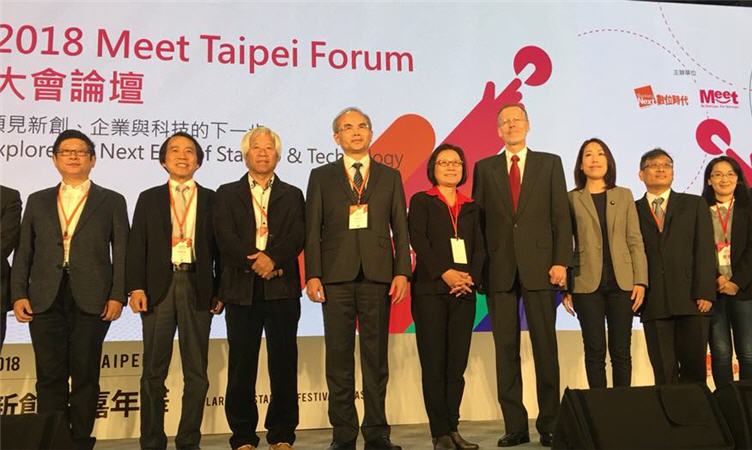November 15, 2018
AIT Official Text #: OT-1841
Deputy Mayor Lin, Deputy Minister Tseng, Legislator Yu, Legislator Hsu, French Representative Guidée, Indian SME Secretary Panda, Business Next Publisher Ho, distinguished guests, ladies and gentlemen, zao an!
It is my great pleasure to be here today to celebrate the leading edge of Taiwan’s innovative future. We are especially pleased that more than 100 startups from 20 countries have come to build bridges between our startup ecosystems. More than anything, it is all of you gathered here today who will shape Taiwan’s and the region’s technological future, and my message for you is simple: the United States wants to be your partner.
U.S. firms are increasingly looking to Taiwan as a hub for artificial intelligence research and development. Microsoft, IBM, Amazon, Google, Qualcomm, and others have all set up R&D innovation labs to tap into Taiwan’s greatest asset – it’s tremendous brain power.
The United States and Taiwan are natural partners for startups and entrepreneurship. The United States Indo-Pacific Strategy calls for cooperation aimed at expanding opportunities on infrastructure, energy, and the digital economy, in particular with South and Southeast Asia. Taiwan’s New Southbound Policy and its 5+2 Industrial Innovation Plan share the same goals.
Towards this end, the United States and Taiwan have been working closely together on an ambitious startup work plan.
Our work plan seeks to accomplish three main objectives:
First, we want to promote women’s entrepreneurship. For us, this is not just an issue of good social policy, but also smart economics. One of the best ways of addressing Taiwan’s demographic challenges is to increase the participation of women in the economy. Study after study has shown that one of the fastest ways to grow an economy is to give more economic power and opportunity to Women. Next March, we plan on organizing with the Taiwan authorities a large-scale Women’s Entrepreneurship Summit, and you are all invited.
Second, we want to “Go South together.” In the past Taiwan was viewed as the gateway into China. But now, Taiwan is increasingly being viewed as the gateway into South and Southeast Asia. The U.S. Small Business Administration and Taiwan’s Small and Medium Sized Enterprise Administration are working closely to expand export joint ventures targeting South and Southeast Asia markets for our innovative industries and to promote the development of market-friendly startup ecosystems in these economies.
Third, we are working together to encourage social entrepreneurship. In the 1960s, social activism was largely confined to marches and protests aimed at encouraging governments to do the right thing. Thanks to emerging digital technologies, in today’s world, activists are no longer asking government to solve problems, they are assuming personal responsibility for solving society’s problems themselves through innovative social entrepreneurship. Digital Minister Audrey Tang and Legislator Karen Yu are leading the way in developing Taiwan’s social entrepreneurial spirit, and we are proud to be their close partners.
Sometimes people ask what is the secret to the United States’ innovative success. The answer is actually quite simple. For us, we view our top universities as startup accelerators. When industry, academia, and research parks work closely together in a culture that embraces entrepreneurial attempts that misfire as the building blocks for future success, innovation naturally happens. We are very pleased to see how Taiwan’s Ministry of Science and Technology and its Ministry of Education are moving in exactly this direction.
We also applaud Taiwan’s innovative mayors, including Mayor Ko, who have transformed Taiwan cities into testbeds for innovation and entrepreneurship. It is often at the local level where some of the biggest innovative breakthroughs happen, especially for smart cities.
Once again, I want to congratulate all of Taiwan’s entrepreneurs for their long hours and tireless passion. Your hard work and creative spirit will not only launch new businesses, but they will lay the foundation for Taiwan’s economic future.
Thank you.
















![Video Thumbnail [Recovered]-01](../wp-content/uploads/sites/269/Video-Thumbnail-Recovered-01-1-750x450.jpg)





